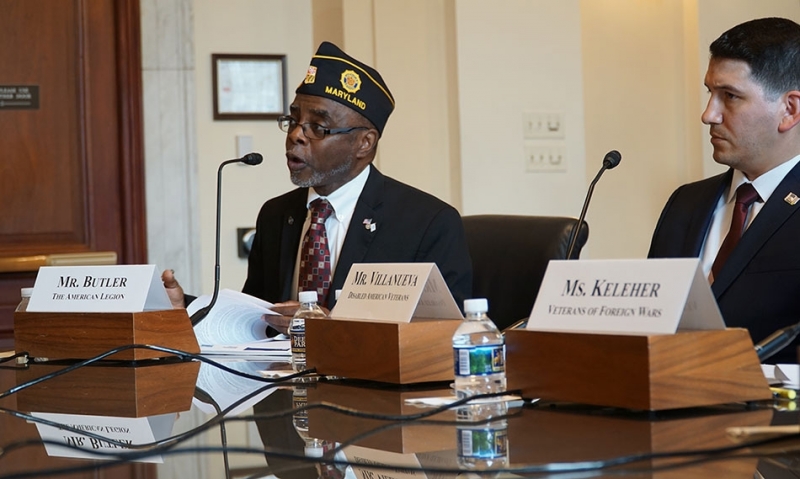
Legion voices support for five pieces of legislation, which included bills to recruit and retain more qualified medical professionals at the VA.
Roscoe Butler, American Legion deputy director for health care in the Veterans Affairs and Rehabilitation Division, testified June 13 before the Subcommittee on Health to voice the Legion’s support for five pieces of pending legislation, which included bills addressing the severe staffing shortages plaguing the Department of Veterans Affairs (VA).
There will be a shortage of more than 100,000 doctors by 2030, including medical officers, nurses, psychologists, physician assistants and medical technologists, according to a March 2017 study commissioned by the Association of American Medical College.
“The American Legion has identified and reported staffing shortages at every VA medical facility and reported these critical deficiencies to Congress, VA Central Office, and the president of the United States,” Butler said.
H.R. 5521, the VA Hiring Enhancement Act, seeks to address the shortcomings in the recruitment and retention of qualified medical professionals. The bill will speed up the hiring of newly recruited doctors and allow them to immediately begin treating veterans at the completion of their residency by allowing VA to make binding job offers of up to two years before a physician completes their residency program.
According to Butler, the bill also releases physicians from non-compete agreements. This helps to ensure that "when a qualified physician who is an applicant for appointment to a position in the Veterans Health Administration has entered into a covenant not to compete with a non-department facility, the individual will not be barred from accepting an appointment to a position in the Veterans Health Administration.” Through the establishment of a pilot clinical observation program for pre-med students preparing to attend medical school, H.R. 2787, the Veterans-Specific Education for Tomorrow’s Medical Doctors Act, aims to address these issues. The American Legion passed two resolutions supporting legislation that addresses the recruitment and retention problems VA faces. They are Resolution No. 115, Department of Veterans Affairs Recruitment and Retention, and Resolution No. 377, Support for Veteran Quality of Life.
The shortage of medical professionals — particularly those with highly specialized skillsets such as orthotics and prosthetics — requires Congress to ensure that resources and funding are available to continue the education and training of such clinicians. H.R. 3696, the Wounded Warrior Workforce Enhancement Act, requires the secretary of the VA to award grants establishing and expanding master’s degree programs in orthotics and prosthetics. By admitting more students, providing better training faculty, expanding facilities and increasing cooperation with VA and the Department of Defense, this bill addresses the needs of the approximately 90,000 VA patients with amputations.
Testimony supporting two other pieces of pending legislation — H.R. 5693, the Long-Term Care Veterans Choice Act, and H.R. 5938, the Veterans Serving Veterans Act of 2018 — were submitted to the subcommittee by The American Legion. H.R. 5693 authorizes VA to enter into contracts to place veterans who cannot live independently in non-VA medical foster homes. Currently, veterans enrolled in Home Based Primary Care through the VA can choose to receive care at a medical foster home, but veterans eligible for nursing home care through the VA are not eligible to receive care at these homes, nor does the VA cover the expense. This bill requires VA to provide nursing home care at a veteran’s request and the veteran can then be placed in a medical foster home that meets VA standards. American Legion Resolution No. 114, Department of Veterans Affairs Provider Agreements with Non-VA Providers, provides the foundation to support this bill.
Finally, H.R. 5398 expands an existing database to include members of the armed forces in the talent pool to meet VA’s occupational needs. The recruiting database covers every vacancy in the VA with the ability to select applicants for positions different than the one for which they originally applied. To be known as the “Recruitment Database of the Department of Defense and the Department of Veterans Affairs,” the database will provide the military occupational specialty or the skillset corresponding with each vacant position, as well as qualified servicemembers who could be recruited for these vacancies before separating from service.
- Legislative

